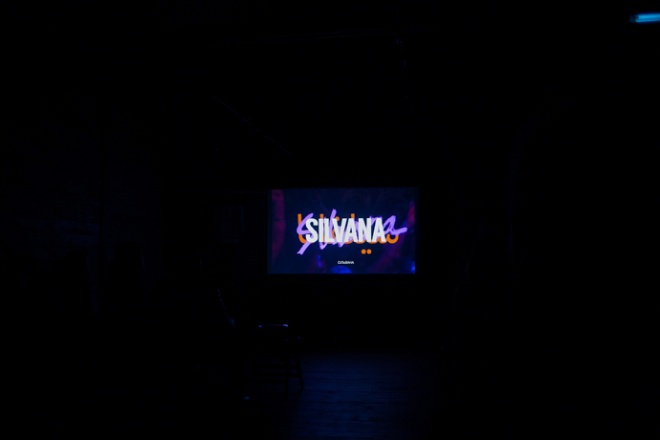The Mark Left by Silvana
The Mark Left by Silvana
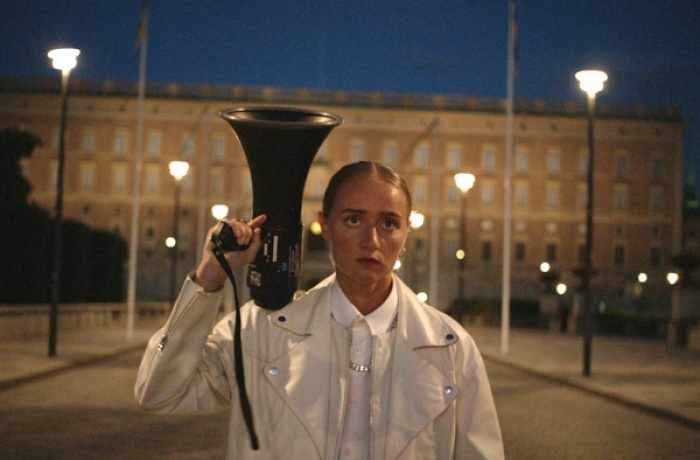
In November, Lviv hosted a screening of the film Silvana and a discussion with Olha Raiter, the program director of the Wiz-Art Film Festival, and Maria Demisheva, a feminist researcher who studies the problems of the Middle East; the discussion was moderated by the feminist activist Yosh. The event was supported by the Moving Docs project.
Silvana (directors Mika Gustafson, Olivia Kastebring, Christina Tsiobanelis) was the second film to be screened in Lviv from the Queerality thematic program, which appeared at the Docudays UA in Kyiv for the first time this year and aimed to cover the issues of LGBTIQ people’s lives. The first queer film this year in Lviv was My Body Is Political. Since our festival is not only about films, but also includes various human rights events, it’s better to start our description of Silvana’s journey with the events that preceded the screening.
Trailer of the film Silvana
Increased Security
Public events related to LGBTIQ topics cannot be considered safe either in Ukraine in general (the latest events include the blocking of the Coming Out Fest concert in Kharkiv, the MPs’ attempts to pass homophobic laws), or in Lviv in particular (the disruption of the Festival of Equality in 2016, after which there haven’t even been any attempts to organize such festivals in Lviv). Among others, this year’s Docudays UA Festival in Kyiv also faced violence while trying to talk about the problems of the spread of far-right movements. And the cinema where Silvana premiered in Ukraine has been rebuilt after an arson by homophobes during one of the screenings of the Molodist Film Festival’s LGBT program in 2014.
Therefore, the organization of the screenings of Silvana and My Body Is Political (two films from the Queerality program) required some advance thinking about security. The planned locations of the screenings were the Dovzhenko Center and the Lviv Regional Youth Center, respectively. During the negotiations with the administrators of the locations about the festival screenings, the coordinators articulated the content of the films and the organizational moments aimed to create a safe space. The films did not raise any objections, and the collaboration was agreed upon; however, the issue of security was not a regular task for both locations, so the involvement of guards and the organization of security measures fell on the coordinators’ shoulders.
Already at the stage of signing the contracts about collaboration and transferring the rights to public screenings of the festival program, the Administration of the Dovzhenko Center suddenly refused to cooperate, citing overlaps in their schedule. However, the refusal was preceded by questions about the content and the protagonist of the film Silvana. We can only guess what the actual reasons of rejection were.
However, in this context, we would like to compliment the leadership of the Regional Youth Center and the Territory of Terror Memorial Museum of Totalitarian Regimes, because they were not scared away either by the topic or by the possibility of blocking and attacks on the location during the events; they provided their full cooperation and support. It should also be noted that the police fulfilled their duties, providing security for the events and direct phone numbers of responsible persons. In the end, the screenings went peacefully, without any threats or attempts to block them.
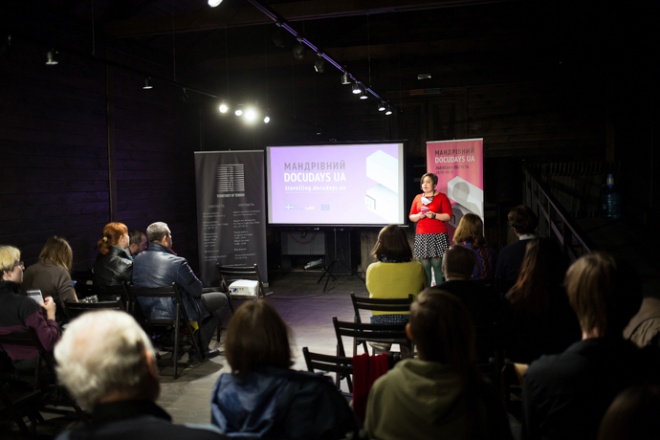
Why Silvana?
Through the description of this situation, we approach the problems discussed in the film Silvana, which was filmed in Sweden in 2014-17 by the directors Mika Gustafson, Olivia Kastebring and Christina Tsiobanelis, but which is relevant for Ukraine, too. The things articulated by the film’s protagonist, the rapper Silvana Imam, are not as obvious in Ukraine as, for example, the war with Russia or the poverty of elderly people.
In Silvana, we see a young, pretty and courageous singer who seems to do her favorite thing in the world — rapping, with a crowd of fans around her. The camera lens picks out the fans’ young ecstatic faces. In the eyes of a Ukrainian person, Silvana looks rather privileged, and the outrage in her texts can seem staged and hyped — simply because we are used to the exploitation of hip hop for commercial purposes. The situation of someone opposing homophobia and fascism can be concealed behind the image of the strong rapper and her confident aggressive lyrics.
The audience of the Travelling Docudays UA joined the discussion which went peacefully and cozily in the comfortable hall of the Territory of Terror Museum, almost in the city center, without any pitfalls or additional measures.
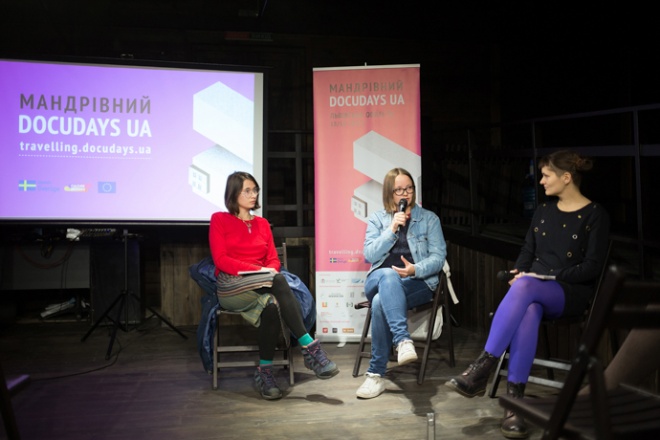
In her texts, the young Swedish rapper talks about the oppression of lesbians in the society, about Nazism, about her personal fear of living next to people who hate her: “you say my love is illegal,” “they draw swastikas on the walls, they hide next door, they are in the government,” “they hate everything I am, but I’m still standing,” “now the Nazis want to crucify me,” “they forced me, pushed me hard, and they created a monster.”
Silvana talks from the position of her own identities as a homosexual woman from a mixed ethnic background, particularly Arab, and as someone who fights for equal rights: a feminist, anti-homophobic and anti-fascist activist. These identities are like signs for understanding the system of value coordinates for those for whom the activist Silvana performs, and those whom she opposes. They may sound forced or just excessive, but they do form a language for understanding. Silvana seems to feel the need to justify herself. “No time for hidden messages, and they never listened to me or understood my language, so I have to shout.” “To shout” means to pick loud words, speak in simplified terms, use labels.
She also has to shout because it’s a characteristic of the genre. Rap became an accessible instrument for communicating one’s position in the US in the 1970s, and it still remains a working tool for artists who can express as many ideas as possible with as few artistic means as possible. The rules of the genre do not require live musical accompaniment; rap is mostly performed to the recorded beat, and reading the texts does not necessarily require high vocal skill. Given this limited artistic toolkit, great attention is paid to one thing: rap must rock. And what rocks is, as we all know, first of all, the rhythm and expressivity, and second, simple phrases which appeal to emotions. So rap lyrics are often superficial and use cliches.
Silvana is distinctive in terms of whom her cliches are addressed to and who understands them. Given the position of anti-systemic and anti-patriarchal criticism, it is doubtful that there is anything “generally accessible” or “generally understandable,” so every performer has their own audience.
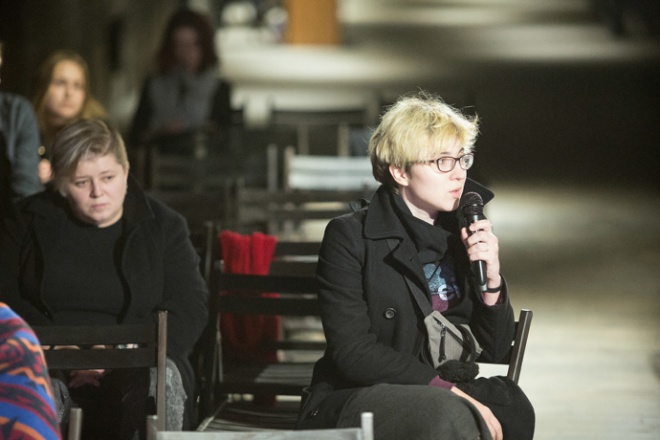
The Possible Happy End
After the rocking concert footage, the filmmakers show the unfolding of the mutual love story of Silvana and another star singer Beatrice Ali. The film could have ended with the sweet and romantic happy end, like in the good old fairy tales, where the good hero who fights evil gets his prize bride — the only difference being that both the hero and the heroine are women.
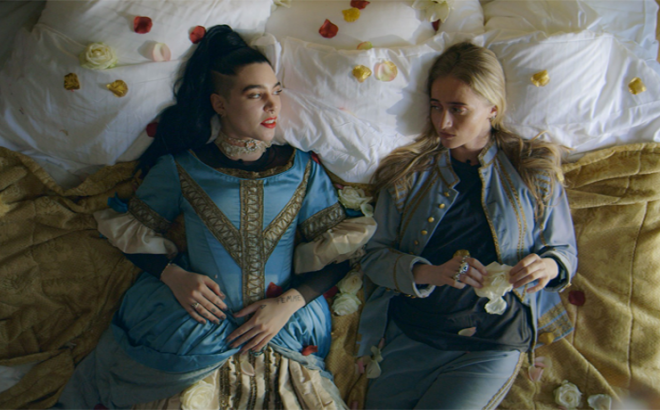
From the film Silvana
At this moment, we can pause and ask the question, Does a woman cease to be a member of a minority group, does she still serve as a role model for the group and work for the group’s sake when she masters a classic male role like Silvana does? When she manages to secure a place on the male dominated rap scene, she follows a male canon. Can she keep on speaking on behalf of women (“my girls and I”), represent the problems and interests of women?
Here is Maria Demisheva’s opinion in this regard.
“When someone expresses themselves, they, basically, adapt some of their behavior because they want to be understood. There are many people who do not accept this dialogue, and we know nothing about them. So here’s the alternative, Do we speak up or not? If we choose to speak up, we can say it’s some kind of masculine feature, if we try to categorize. But I don’t think it’s necessarily a masculine feature, it’s just going beyond the minority position.
“She speaks about herself, but when you speak about yourself, you cannot help touching others, because personal is social, political.
“It’s important to take into account how one speaks and to whom. [...] If she criticized the patriarchal features of the Arab culture, the Middle Eastern culture, it would be a bit different. It would be a privileged person who talks about marginal streams. But she speaks in the context of the European environment, without touching another culture. And that’s why I don’t see any conflict here.”
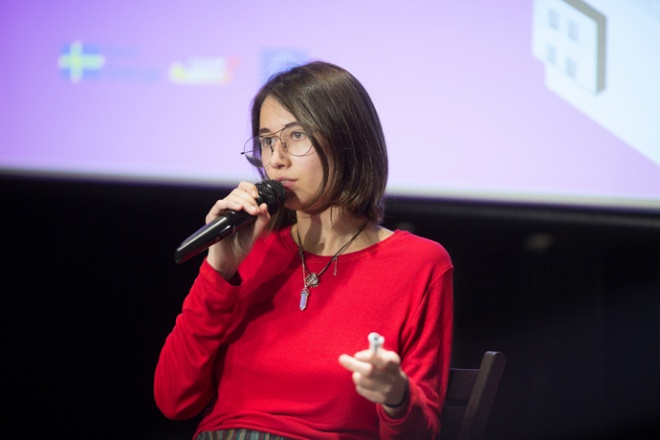
Showing the Other Side
In the second part of the film, we see Silvana who doubts her own role as a superheroine… or, rather, a superhero role model. Perhaps one of the key questions here is what kind of role she got, as a hero or as a heroine: whether she just reproduces the canon of an extremely strong and militant character admired both by women and men, or if she is a niche diva who talks about the problems of the weak and speaks to them, too.
Unlike the stereotypical rapper who speaks to his own “bros,” discussing, say, treacherous women, Silvana constantly addresses a male opponent (“don’t touch my leather jacket, bro,” “this is a battle you’ll never win,” “I’m Arab, the best thing you should be ashamed about”). Indeed, this manner is also a part of the rap battle tradition. But we never see the opponent, either on stage or in the crowd.
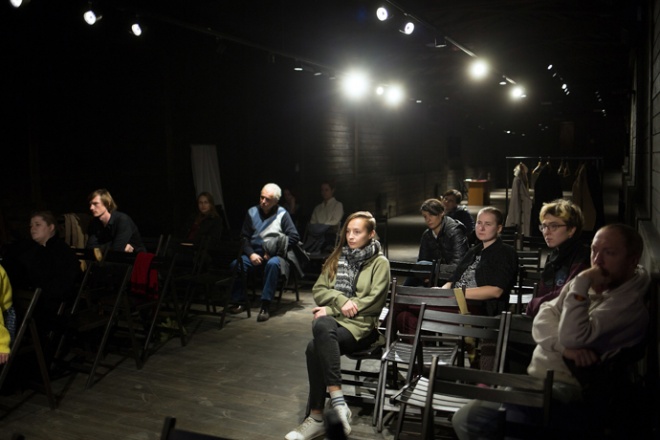
We could imagine that Silvana’s lyrics are, after all, addressed within the group, as an emancipatory mantra. She speaks to those who feel the same pain, the same social pressure, regardless of whether it’s because of their sexuality, background, or other factors. In the atmosphere of everyday oppression and (self)censorship of their language, when people are not free to talk about their relationships and everyday needs, simple phrases said out loud, such as “I’m strong,” “You’re weak” (variations of which are abundant in Silvana’s lyrics), have therapeutic meaning.
However, how does a person who affirms their right to exist avoid overdoing it, turning into the same aggressor they condemned just yesterday? In the film, we observe Silvana’s doubts, clearly associated with an identity crisis. How do you avoid losing your weakness and the appeal of weakness when you fight for the place and rights for the weak? Silvana understands that weakness has its own advantages (and this is not at all about receiving encouragement from strong men by displaying your helplessness), and, after all, it’s part of her identity.
Spreading, Entrenching
The phenomenon of the singer Silvana Imam, as well as of the film, exists in the field of Sweden’s mass culture, and that is where it does its thing, securely establishing the lesbian, anti-fascist, feminist message. According to Olha Raiten, who recently was a jury member for a Swedish film festival’s national competition, films in this country are often characterized by political slogans without the understanding of what is behind them. In Sweden, such things as anti-homophobia and anti-fascism can become cliche, at least within film theaters.
And Ukraine needs its own popular culture product which would speak to our compatriots. For example, like the successful Ukrainian film The Mad Wedding that addresses the problems of racism in Ukraine, or like the participation of lesbians and transgender people in talent shows.
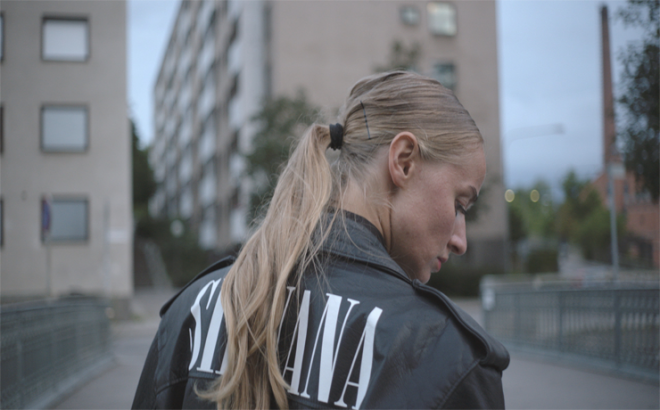
Nevertheless, do things really change under the influence of pop stars? Is it really so easy to shift the society’s attitudes? There is a hypothesis that screen characters are not perceived by people as a part of their reality, and pop stars, among whom the phenomenon of homosexuality is not so new (remember Freddie Mercury), do not help to change the position of a Ukrainian father or mother, for whom the heteronormative family happiness is the only proper course of life for their daughter or son.
However, the absence of positive consequences is not the reason to resort to censorship of imperfect attempts to change the rules of the game or to choose the most beautiful, effective or correct examples of alternative culture, because we already have a mass of ugly and incorrect examples of the mainstream culture which has no alternative. Another problem faced by those who claim to create new role models is that they are expected to be perfect and have nothing to do with their predecessors, but at the same time to be understandable for all. But it never happens, and if it suddenly does, we would be unable to understand them.
Text: Yosh
Photos: Yurii Olsh
